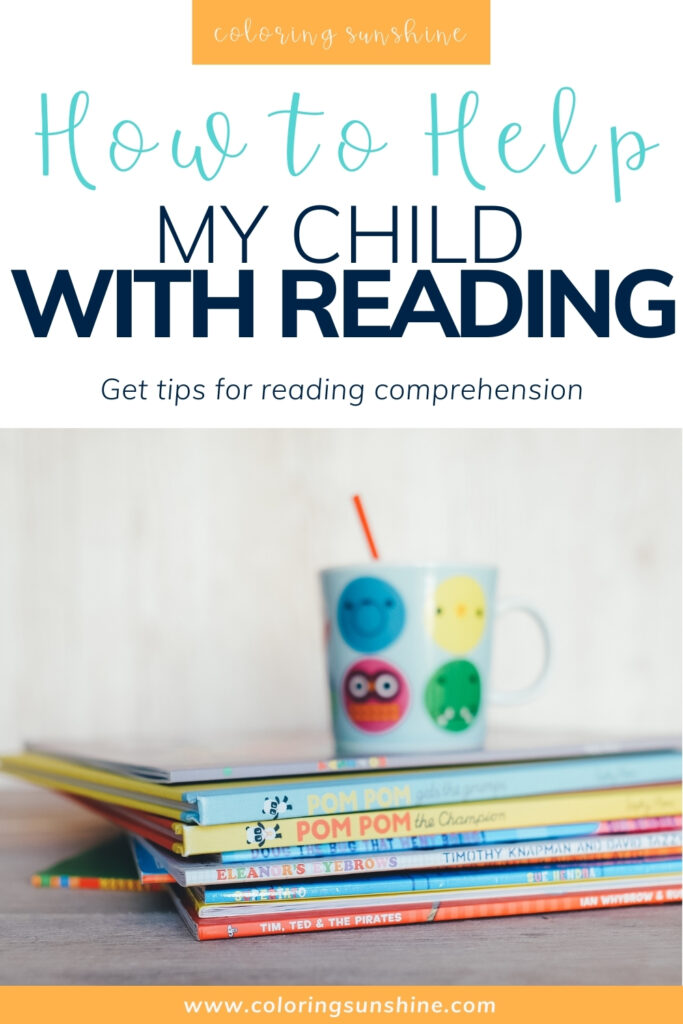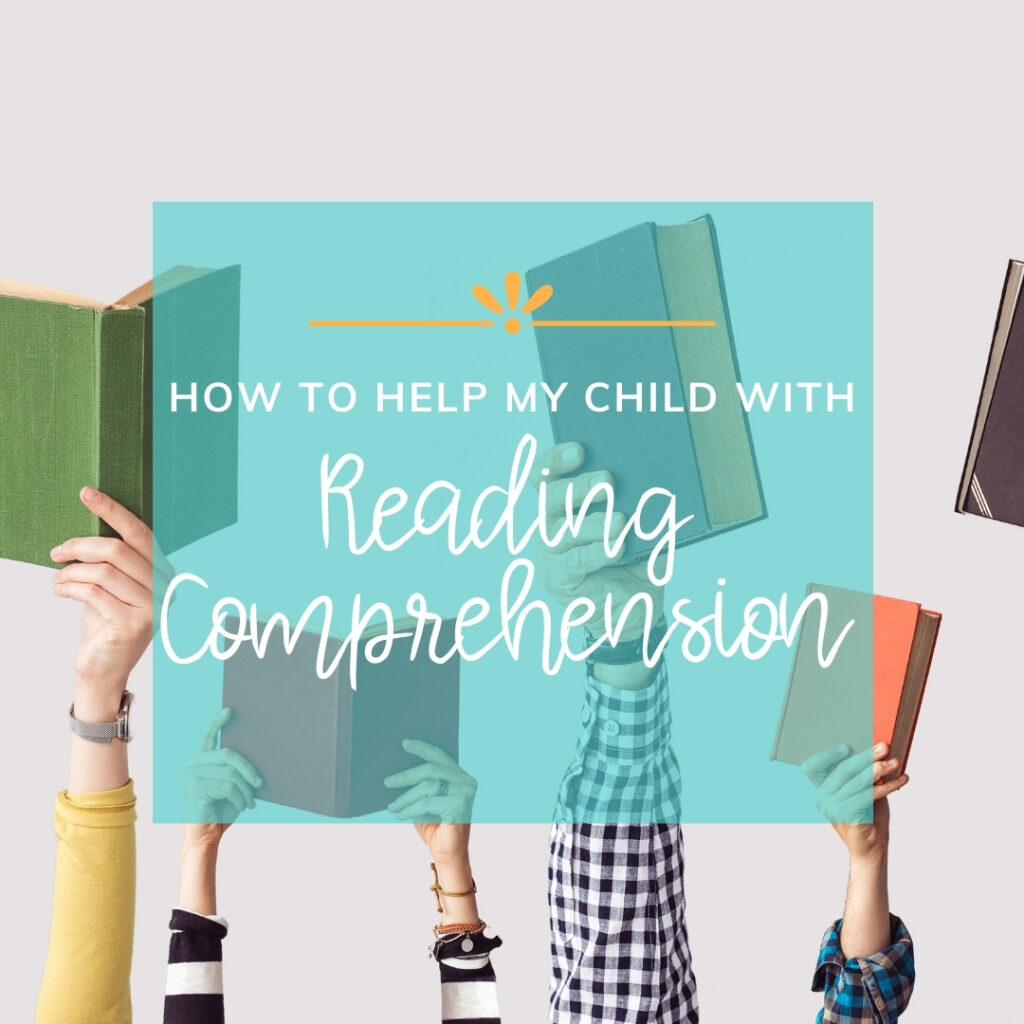When I taught second grade I had many parents ask how they could help if their child is struggling with reading comprehension. With 2nd graders, it is a tough transition because your child is going from learning to read to now reading to learn. I know it’s incredibly difficult to see your child struggle with reading, so I wanted to give you some ways to help. These are actionable tips, from my teaching experience, that you can do from home to help your child’s reading comprehension.
What is reading comprehension?
Let’s quickly cover what exactly a teacher means when they are talking about your child’s reading comprehension. Reading comprehension is how well your student understands what they just read. Again it goes back to the goal of them being able to read to learn from the text they are given.

How can I help my child who is struggling with reading comprehension?
The biggest way you can help your child strengthen any skill is through practice. If your child isn’t exposed to many books at home, they aren’t going to have the opportunities to grow. Keep that in mind as you read through the tips.
Check their comprehension while YOU read.
First, help your child to feel successful by asking them some of the questions below, but while YOU read to them. This is a great model for them to understand what they should try to be looking for when they read by themselves. At the same time, it takes the pressure off of them to have to work on reading a text all by themselves.
Ask questions before they start reading a book.
Ask your child questions before they start reading. This will help them get in the mindset of things they should be looking for. Some example questions you can ask your kiddo would be:
- What do you think this story is about?
- What made you pick this story?
- What do you think you will learn about when you read this book?
- Who will this book be about?
- Why are you excited to read this book?
Pause while reading to ask questions.
While your child is reading you can take time to pause and ask them questions. You don’t want to focus all of the questions at the end of their reading. That can be pretty daunting. Start by giving them some small wins by asking questions while they are reading the story. Some example questions might be:
- Who is your favorite character right now?
- What do you think will happen next?
- How do you think the character is feeling right now?
- What would you do if that happened to you?
- Have you learned anything new so far?
Ask questions at the end of the book.
After your child is done reading have them answer a couple of questions to help them recall what they just read. If it feels like you are drilling them with questions it’s going to make them dread reading time. So just plan to do a couple of questions for each story that you read. Here are some examples of questions you can ask at the end of the story.
- What was your favorite part of the book?
- What was the big problem that happened in the story?
- How did the characters solve the problem?
- Did you like the book? Why or why not?
- Would you want to be friends with the main character? Why?
- Did you learn anything new from this book?
- How would you describe this character?
- Where did this story take place?
- How did the story end?
- Ask any specific question in relation to the story i.e.
- Who was their brother?
- What was he mad about?
- Why didn’t she want to play?
Let your child summarize the text.
After reading the story or passage have your child summarize what happened. Have them describe what they remember from the beginning, middle, and end. Some questions to help your child summarize are:
- What happened in the beginning?
- What happened in the middle?
- How did the story end?
- How would you explain this story to a friend?
- What was the problem in the story and how was it solved?

Have them write their answers sometimes.
With all of these questions, it is great to have your kiddo answer them verbally with you! Another great option to practice though would be to have them write their answers down. If you think about it, that will be the most common way they will need to answer comprehension questions in school so it is good to have them practice at home as well. I’m not saying to do it every single night you are reading with your child because that could be overwhelming for them. Instead, maybe try to do it once a week with them just to switch things up and help them practice that skill.
Practice, Practice, Practice
As I mentioned in the beginning, practice is THE MOST IMPORTANT part. I know you hear it from their teachers but truly reading every single night with your child will move mountains in their overall reading skills. You can take turns who reads every night. Having them read to you is great practice for them, but it is also super important for them to hear what a fluent reader sounds like. Reading together every night and asking 2-3 questions will truly help your child build their reading comprehension skills.
Just please make sure not to make your reading time full of pressure. Kids already know when they aren’t as successful as their peers so the pressure isn’t going to help. If you make that time fun and enjoyable they will start to love to read and that in itself will help them improve. Plus, think of the incredible bonding time you will have with your kiddo when you have 20 minutes of one on one time that you both love.
Free PDF of the Reading Comprehension Questions.
I’m attaching a free PDF I created with all of the questions listed above. That way you can print it off and have them handy when you need some ideas. You can also grab this and more from my free resource library!
Let me know if these tips help your child who is struggling with reading comprehension. I am more than happy to help if you have any other questions. Feel free to put them in the comments below!







